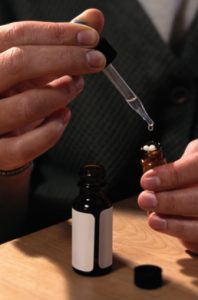 Have you ever wondered why people are so convinced that therapies work, even when there is no science to prove it? Almost every New Age alternative has a website full of testimonials from people who really believe the technique worked. Are these people lying or just deluded?
Have you ever wondered why people are so convinced that therapies work, even when there is no science to prove it? Almost every New Age alternative has a website full of testimonials from people who really believe the technique worked. Are these people lying or just deluded?Neither, according to the experts.
Barry L. Beyerstein, Ph.D., compiled an interesting list of seven reasons why people can think they've been healed by either alternative or conventional medicine when they really haven't.
1. The disease may have run its natural course.
"Many diseases are self-limiting," Dr. Beyerstein writes. "If the condition is not chronic or fatal, the body's own recuperative processes usually restore the sufferer to health."
In order to prove that a therapy is effective, the practitioner has to be able to prove that the number of patients whose condition improved is greater than the number who might be expected to recover without any treatment at all.
"Without detailed records of successes and failures for a large enough number of patients with the same complaint, someone cannot legitimately claim to have exceeded the published norms for unaided recovery."
2. Many diseases are cyclical.
Conditions such as arthritis, multiple sclerosis, allergies, and gastrointestinal problems normally have "ups and downs," Dr. Beyerstein writes. "Naturally, sufferers tend to seek therapy during the downturn of any given cycle. In this way, a bogus treatment will have repeated opportunities to coincide with upturns that would have happened anyway."
 3. The placebo effect may be responsible.
3. The placebo effect may be responsible.
Through suggestion, belief, expectancy, cognitive reinterpretation, and diversion of attention, patients given biologically useless treatments often experience measurable relief, Dr. Beyerstein writes.
It is also possible that in some cases, even a placebo response will produce an actual change in the physical condition. In other cases, subjective changes take place in which the patient feels better even though their condition has not improved.
4. People who hedge their bets credit the wrong thing.
Dr. Beyerstein has found that if improvement occurs after someone has had both "alternative" and science-based treatment, the fringe practice often gets a disproportionate share of the credit.
5. The original diagnosis or prognosis may have been incorrect.
It is always possible that an original diagnosis is incorrect, in which case a trip to an alternative "healer" could lead one to think they've been healed from a certain condition when they never really had it in the first place.
6. Temporary mood improvement can be confused with cure.
"Alternative healers often have forceful, charismatic personalities," Dr. Beyerstein writes. "To the extent that patients are swept up by the messianic aspects of 'alternative medicine,' psychological uplift may ensue."
7. Psychological needs can distort what people perceive and do.
Even when no objective improvement occurs, people with a strong psychological investment in "alternative medicine" can convince themselves they have been helped, Dr. Beyerstein has found.
 "Core beliefs tend to be vigorously defended by warping perception and memory. Fringe practitioners and their clients are prone to misinterpret cues and remember things as they wish they had happened. They may be selective in what they recall, overestimating their apparent successes while ignoring, downplaying, or explaining away their failures."
"Core beliefs tend to be vigorously defended by warping perception and memory. Fringe practitioners and their clients are prone to misinterpret cues and remember things as they wish they had happened. They may be selective in what they recall, overestimating their apparent successes while ignoring, downplaying, or explaining away their failures."
In fact, the reason why we developed the scientific method is to counter this very human capacity for jumping to unfounded conclusions based on what we want to believe rather than on the facts themselves.
As a matter of fact, in this article, Matthew Hornsey, PhD, a professor of psychology at the University of Queensland who studies the processes that influence people to accept or reject scientific messages, has been studying this very problem. He refers to these "core beliefs" as “attitude roots” - the fears, ideologies, worldviews, vested interests and identity needs - that motivate us to accept or reject scientific evidence. He argues that science needs to take these roots into account when communicating scientific facts.
"This is what we call jiu jitsu persuasion: working with people's motivations rather than trying to fight against them," Hornsey says.
For example, in order to convince a vaccine skeptic that a vaccine is safe, it must first be determined if the person is a believer in Big-Pharma conspiracy theories, is skeptical of doctors and the medical establishment in general, or has adopted the trendy “natural is better” approach to health care that allows them to fit in better with their social circle, etc. because this will influence their judgement about whether or not to accept the scientific evidence supporting vaccination.
"The key question is not ‘Why do they disagree with the science?' but rather, ‘Why do they want to disagree with the science?'" Hornsey says.
As author Kristen Weir writes, “Answering that will probably require doing something people in our increasingly polarized political climate are loathe to do: Less talking, more listening.”
When it comes to alternatives, it's always good to remember that there are only two kinds of medicine - proven and unproven. Medicine that has been proven by scientific testing and supported by evidence is known as conventional medicine. Untested medicine is known as alternative medicine. While it's true that plenty of conventional medicine started out in the alternative column, until that happens, we would be wise to put our personal opinions aside and give our God-given science the credit that it's due
© All Rights Reserved, Living His Life Abundantly®/Women of Grace® http://www.womenofgrace.com
Women of Grace® has compiled a library of over 1400 articles on New Age and occult related material and has been offering them to the public for more than a decade – at no charge! If you appreciate our research, please prayerfully consider making a donation to support this vital work! Click here to donate!
